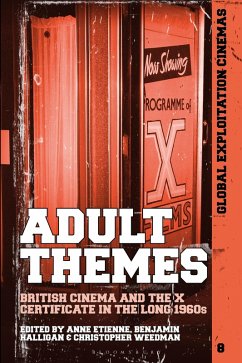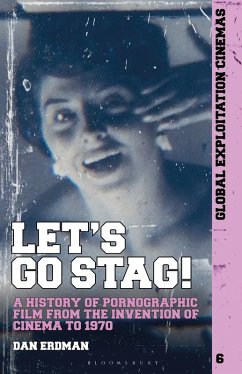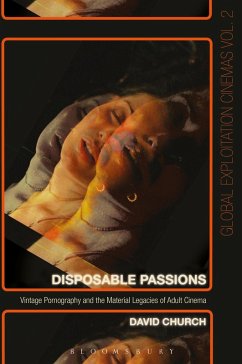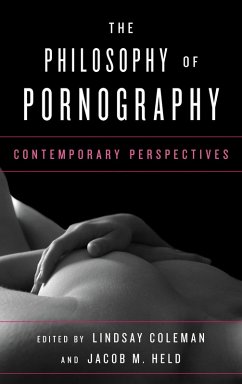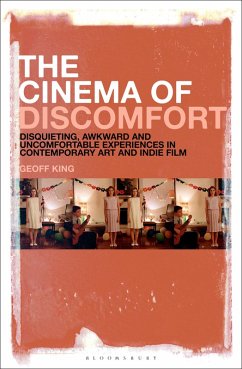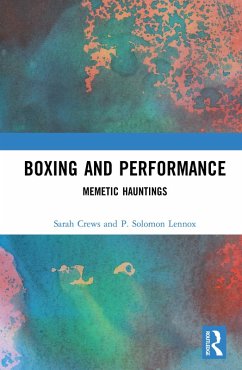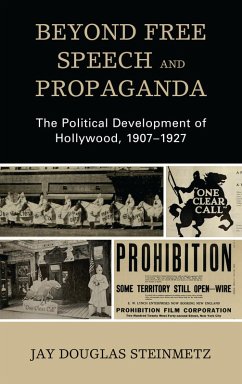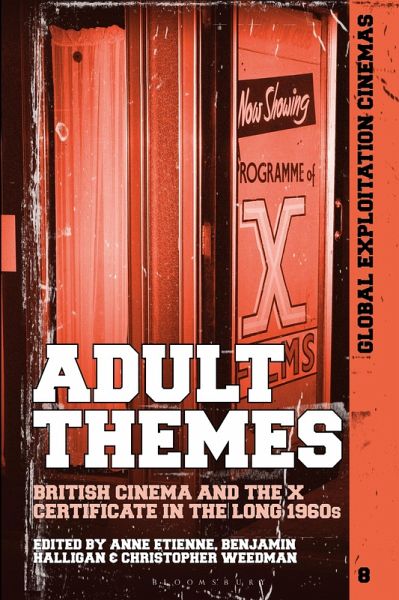
Adult Themes (eBook, PDF)
British Cinema and the X Certificate in the Long 1960s
Redaktion: Etienne, Anne; Weedman, Christopher; Halligan, Benjamin
Versandkostenfrei!
Sofort per Download lieferbar
24,95 €
inkl. MwSt.
Weitere Ausgaben:

PAYBACK Punkte
12 °P sammeln!
Between the late 1950s and mid-1970s, British cinema experienced an explosion of X-certificated films. In parallel with an era marked by social, political, and sexual ferment and upheaval, British filmmakers and censors pushed and guarded the permissible limits of violence, horror, revolt, and sexuality on screen. Adult Themes is the first volume entirely devoted to the exploration of British X certificate films across this transformative period, since identified as 'the long 1960s'. How did the British Board of Film Censors, harried on one side by the censorious and moralistic, and beset on t...
Between the late 1950s and mid-1970s, British cinema experienced an explosion of X-certificated films. In parallel with an era marked by social, political, and sexual ferment and upheaval, British filmmakers and censors pushed and guarded the permissible limits of violence, horror, revolt, and sexuality on screen. Adult Themes is the first volume entirely devoted to the exploration of British X certificate films across this transformative period, since identified as 'the long 1960s'. How did the British Board of Film Censors, harried on one side by the censorious and moralistic, and beset on the other by demands for greater artistic freedom, oversee and manage this provocative body of films? How did the freedoms and restrictions of the X certificate hasten, determine, and reshape post-war British cinema into an artistic, exploitational, and unapologetically adult medium? Contributors to this collection consider these central questions as they take us to swinging parties, on youthful crime sprees, into local council meetings, on police raids of cinemas, and around Soho strip clubs, and introduce us to mass murderers, lesbian vampires, apoplectic protestors, eroticised middle-aged women, and rebellious working-class men. Adult Themes examines both the workings and negotiations of British film censorship, the limits of artistic expression, and a wider culture of X certificate cinema. This is an important volume for students and scholars of British Film History and censorship, Media Studies, the 1960s, and Cultural and Sexuality Studies, while simultaneously an entertaining read for all connoisseurs of British cinema at its most vivid and scandalous.




